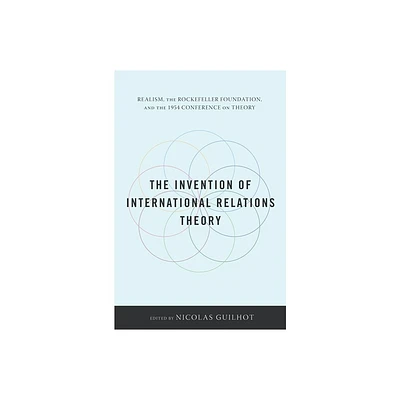Home
Re-Thinking International Relations Theory via Deconstruction
Loading Inventory...
Barnes and Noble
Re-Thinking International Relations Theory via Deconstruction
Current price: $125.00


Barnes and Noble
Re-Thinking International Relations Theory via Deconstruction
Current price: $125.00
Loading Inventory...
Size: Hardcover
*Product Information may vary - to confirm product availability, pricing, and additional information please contact Barnes and Noble
International Relations (IR) theorists have ceaselessly sought to understand, explain, and transform the experienced reality of international politics. Running through all these attempts is a persistent, yet unquestioned, quest by theorists to develop strategies to eliminate or reduce the antinomies, contradictions, paradoxes, dilemmas, and inconsistencies dogging their approaches. A serious critical assessment of the logic behind these strategies is however lacking. This new work addresses this issue by seeking to reformulate IR theory in an original way.
Arfi begins by providing a thorough critique of leading contemporary IR theories, including pragmatism, critical/scientific realism, rationalism, neo-liberal institutionalism and social-constructivism, and then moves on to strengthen and go beyond the valuable contributions of each approach by employing the logic of deconstruction pioneered by Derrida to explicate the consequences of taking into account the dilemmas and inconsistencies of these theories. The book demonstrates that the logic of deconstruction is resourceful and rigorous in its questioning of the presuppositions of prevailing IR approaches, and argues that relying on deconstruction leads to richer and more powerfully insightful pluralist IR theories and is an invaluable resource for taking IR theory beyond currently paralyzing ‘wars of paradigms’.
Questioning universally accepted presuppositions in existing theories, this book provides an innovative and exciting contribution to the field, and will be of great interest to scholars of international relations theory, critical theory and international relations.
Arfi begins by providing a thorough critique of leading contemporary IR theories, including pragmatism, critical/scientific realism, rationalism, neo-liberal institutionalism and social-constructivism, and then moves on to strengthen and go beyond the valuable contributions of each approach by employing the logic of deconstruction pioneered by Derrida to explicate the consequences of taking into account the dilemmas and inconsistencies of these theories. The book demonstrates that the logic of deconstruction is resourceful and rigorous in its questioning of the presuppositions of prevailing IR approaches, and argues that relying on deconstruction leads to richer and more powerfully insightful pluralist IR theories and is an invaluable resource for taking IR theory beyond currently paralyzing ‘wars of paradigms’.
Questioning universally accepted presuppositions in existing theories, this book provides an innovative and exciting contribution to the field, and will be of great interest to scholars of international relations theory, critical theory and international relations.


















